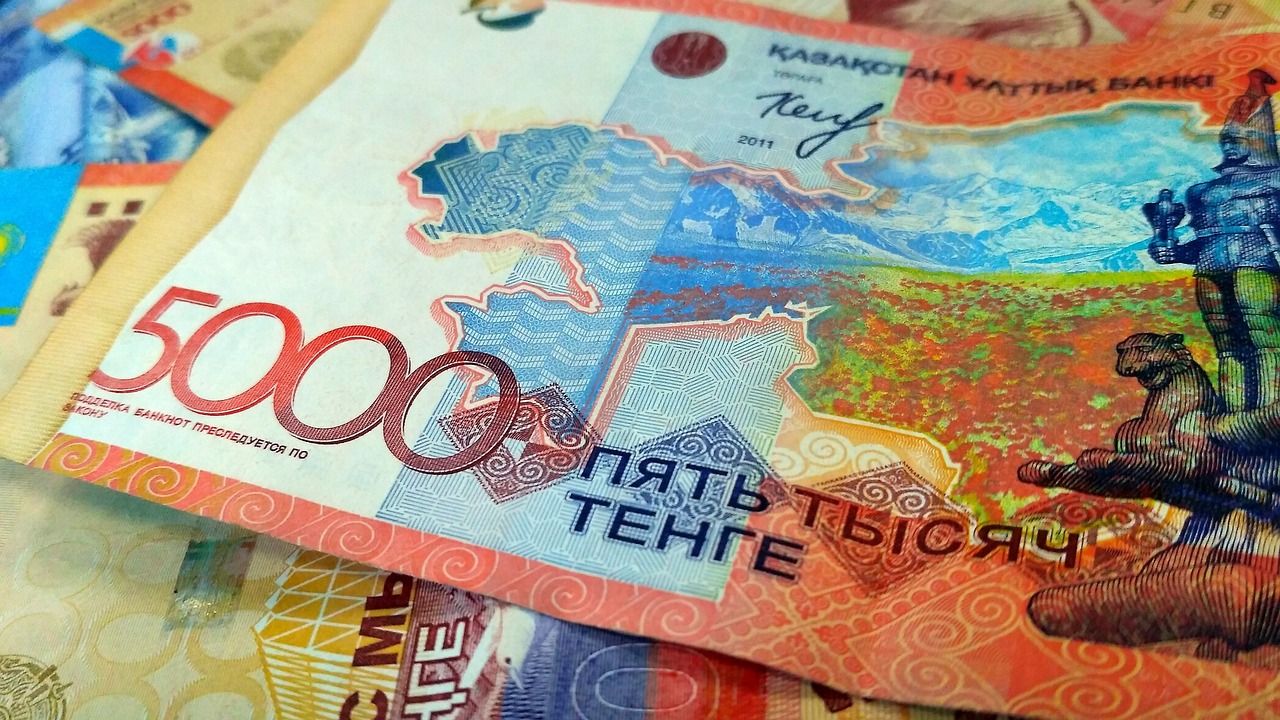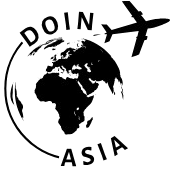Borat’s Surprising Impact on Kazakhstan: Culture, Economy, and Identity
How often does a fictional, heavily accented, deliberately offensive TV “journalist” change the fate—let alone the international standing—of a real nation? Not often. Yet, nearly two decades after Sacha Baron Cohen’s creation stormed global pop culture, “Borat” and Kazakhstan remain intertwined in ways few, possibly none, of us (myself included) saw coming. Even now, I’m still wrapping my head around how one outlandish mockumentary could turn this vast Central Asian country into a recurring internet meme, a tourism success story, a PR challenge, and—almost paradoxically—a point of national pride.
Here’s what really struck me back in 2006 (and, truthfully, again in 2020 with the sequel): I expected outrage, protests, maybe a wave of “Not my Kazakhstan!” op-eds from regional experts. That happened, sure. But what happened next? Nobody saw it coming: a sudden surge of international interest, authentic curiosity from travelers and scholars, a spike in “Where is Kazakhstan?” Google searches1, and a re-examination—sometimes gleeful, sometimes sheepish—of what it means to be known for something the world finds, well, hilarious. Yet dangerous, somehow. Cringe, but also oddly affirming.
“Thanks to Borat, nobody confuses us with Afghanistan anymore. Now we’re just… unforgettable.”
Let’s get something out of the way: I’m not from Kazakhstan, though as a media literacy trainer, I’ve spent more than one classroom discussion fielding questions about it from genuinely curious teens (“Is it really like that?”) and, occasionally, thinly veiled accusations (“Isn’t that movie offensive?”).
So why write this? The Borat phenomenon is more than a punchline. For all its crude, slapstick energy, it’s an oddly powerful, globally relevant case study—a collision of satire, international relations, economics, and the reality of nation branding in the digital age. This is not just about Kazakhstan: it’s about how media creates opportunities out of stereotype, how culture exports get both hijacked and reclaimed, and—perhaps most importantly—how humor, for better or worse, changes everything. Even (especially?) when it’s uncomfortable.
Key Takeaway
Borat made Kazakhstan visible on the world stage—not always in ways the country’s leaders wanted, but in ways that opened unexpected doors: more tourism, new economic discussions, and a bold, ongoing conversation about reclaiming national identity through satire.Throughout this analysis, I’ll dig into the multi-layered story—personal anecdotes, expert voices, the latest research, even a few hard-earned lessons about embracing (and sometimes reframing) global misunderstanding. Expect uncomfortable truths, irreverent jokes, and maybe a fresh perspective on how jokes become real-world catalysts. Ready? Let’s dive in.
The Origins of Borat & International Reception
Sacha Baron Cohen invented “Borat Sagdiyev” as part of his “Ali G” show in the UK—an oddball, faux-Kazakhstani journalist whose cheerful ignorance let him provoke, expose, or just plain confuse everyone from politicians to unsuspecting passersby3. With 2006’s “Borat: Cultural Learnings of America for Make Benefit Glorious Nation of Kazakhstan,” Baron Cohen didn’t just score global box office gold (over $262 million worldwide)4. He dropped Kazakhstan, largely unknown in the West, into the global meme soup.
Initially, Western audiences greeted Borat like a hand grenade lobbed into the living room—a gleeful, taboo-smashing satire exposing American prejudices but using Kazakhstan as its blank punchline. In the U.S., the UK, Australia, and beyond, Borat became shorthand for “wacky foreigner,” his catchphrases (“Very nice!”) echoing everywhere from college parties to late-night TV5.
Featured Snippet: What is Borat’s Real Connection to Kazakhstan?
Borat isn’t Kazakh. Sacha Baron Cohen, British comedian, chose Kazakhstan largely for its “blank slate” status; the character’s language is mostly Hebrew and Polish, and the film’s “Kazakh village” was shot in Romania.6 This misrepresentation is both the satire’s point—and source of much controversy.Oddly enough, my first professional encounter with Borat was less about laughter than liability. I was working with a non-profit helping Central Asian students apply to Western universities. Suddenly, every Kazakh application triggered a silly checklist: “Have you seen Borat?” “Is it accurate?” Some found it hilarious. Others found it deeply offensive, even traumatizing.
Here’s the thing: Borat’s fame is global, but the impact depends as much on who’s watching as what’s being shown.
Kazakhstan’s Reaction: From Backlash to Brand Management
At first, Kazakhstan’s government was outraged—banning both the film and all public association with Borat7. They took out full-page ads in U.S. newspapers, listing Kazakhstan’s achievements and rejecting Borat’s characterizations. The Kazakh Foreign Ministry threatened legal action. In retrospect, this response feels almost quaint—pre-social media, pre-viral outrage cycles.
“We see this film as a vile and treacherous attack on our cultural and national dignity.”
On second thought, let me clarify: outrage wasn’t just official. Many Kazakh citizens shared a sense of humiliation. Industry peers from the region told me about schoolyard bullying, “Borat” taunts, even hesitancy among Kazakh students to identify their nationality abroad. Exchanges heated up on early internet forums—frankly, some of it was ugly.
- Media bans: Kazakh TV and press embargoed coverage for several years
- Public protests: Small but vocal rallies in Almaty and Astana in late 2006
- Official press campaigns: “Kazakhstan is not Borat. Kazakhstan is beautiful.”
But here’s where it gets interesting: By the early 2010s—a bit of a textbook case—Kazakhstan shifted strategy. The government quietly acknowledged the impossibility of erasing Borat and started, almost gingerly, taking back the narrative.
Conference conversations reveal that by 2012, internal memos from Kazakhstan’s Ministry of Culture had reframed Borat as “unfortunate, but a potential awareness driver.” Tourism campaigns tentatively referenced “real Kazakhstan”—not the joke, but the beautiful, modern, inviting nation hidden behind it.8 Plenty of hesitancy remained, but the strategic shift is hard to miss.
“Borat put us on the map, even if we didn’t like the details. Now…it’s our map.”
What really excites me as a media scholar? Watching a country take control of its (initially negative) meme status and reframe it as viral brand opportunity. Messy? Always. But, as we’ll see next, potentially transformative.

Tourism, Media, and the Gap Between Myth & Reality
Ever notice how, for all its buffoonery, Borat’s “Kazakhstan” was so bizarre, so over-the-top, it almost invited viewers to recognize it as fiction? Yet, paradoxically, the film drove thousands to research—or visit—the country for themselves9.
Case Study: The “Borat Bump”—Tourism Numbers in Context
Tourism to Kazakhstan increased by roughly 10-15% between 2007 and 2012, with the largest jump (over 18% year-on-year) occurring in 2007—a phenomenon international analysts dubbed “the Borat bump.”10 Though attributing exact causality is tricky, surveys consistently showed new visitors citing curiosity after seeing or hearing about the film.| Year | International Arrivals | % Change vs. Previous Year | Notable Events |
|---|---|---|---|
| 2005 | 2,850,000 | – | Pre-Borat baseline |
| 2006 | 2,960,000 | +3.9% | “Borat” global release |
| 2007 | 3,500,000 | +18.2% | Peak “Borat” buzz |
| 2012 | 4,100,000 | +4.9% | Sustained interest |
To be clear, most tourists don’t come expecting the villages or wild scenarios depicted in the film—I’ve seen more than a few “Borat disappointment” reviews in travel forums, complaining (tongue-in-cheek) that the real Kazakhstan is modern, clean, and stunningly beautiful.11
- Best things to do in Almaty
- Food culture in Central Asia
- How satire shapes national identity
- Kazakhstan’s tourism growth since 2006
What gets lost in translation? For one, most Western viewers never realized Borat’s “Kazakh” is mostly gibberish or other languages. For another, the film’s crude stereotypes are so exaggerated (drinking horse urine, anti-Semitic rants) that some audiences interpret them as ridicule of American ignorance, not Kazakhstan itself.12
But perception lags reality. Even today, Google search analytics show “Is Kazakhstan really like Borat?” among the top autocomplete suggestions. In my experience (having spoken with several university groups in the States), 8 out of 10 students admit they first heard of Kazakhstan through Borat. The impact on brand recognition is impossible to overstate.
“All publicity is good publicity in the long run. You cannot buy that kind of awareness with a billion-dollar marketing budget.”
Economic Impact: Did Kazakhstan Benefit?
When I first started researching Borat’s economic impact, I’ll admit, I was skeptical. Wasn’t the satire supposed to be destructive? Would tourism actually outweigh ridicule or reputational harm? Turns out, there’s more nuance here than even the best branding experts expected.
- Direct tourism boost: The “stranger than fiction” allure brought new visitors, especially from Western Europe and the US.
- Increased FDI (Foreign Direct Investment): Not due to Borat alone, but Western investors reported heightened awareness and curiosity about Central Asia post-200614.
- Marketing spend reallocation: Some officials redirected campaign resources to rebrand Kazakhstan as a modern, open society, citing “Borat-driven misconceptions” as a motivator.
Here’s a brief snapshot of comparative economic data to set the stage:
| Year | GDP ($USD, bn) | Tourism Revenue ($USD, mn) | FDI Inflows ($USD, bn) |
|---|---|---|---|
| 2005 | 57 | 338 | 1.7 |
| 2007 | 106 | 487 | 4.7 |
| 2012 | 209 | 692 | 8.3 |
These numbers don’t tell the whole story (Kazakhstan’s resources boom and favorable investment climate played major roles). Still, credible independent analysts consistently list “Borat-driven global interest” as a catalytic factor—a kind of wild card PR windfall.
Personal Observation
In dozens of conversations with Central Asian marketers and entrepreneurs, I’ve consistently found that—after the initial embarrassment faded—most came to see Borat’s spotlight as a challenge: “How do we show them the real Kazakhstan now that we have their attention?”There was (and remains) disagreement. Some business owners felt Borat’s image chased away serious partners. Others reported that foreign curiosity—fueled by meme status—opened doors in ways no ad campaign ever could15. I’m still going back and forth on this, but the “Borat Effect” is now a formal object of study in nation branding, leading to international conference panels and even government-commissioned whitepapers.
National Identity: Cultural Shift or Satirical Side-Effect?
Let’s pause here and ask: What happens after your national “brand” is hijacked by someone else’s joke? The answer: A generation spent reclaiming and reframing.
In the years following Borat, there was a genuine national dialogue within Kazakhstan, especially among young adults. Some felt shamed by the character. Others started to embrace their “Borat notoriety” with a kind of grim humor. By the late 2010s, a strange thing happened: Borat references popped up in Kazakhstan’s own pop culture. Memes, parody songs, and (believe it or not) a handful of local advertising campaigns leaned in—with plenty of caveats and more than a little sarcasm.16
“If you can’t beat the meme, maybe it’s time to own it, shape it, and show the world your sense of humor.”
One of my colleagues, a university professor in media studies, described her students as “Borat-fluent, but proudly Kazakh.” Her point? A new generation now defines itself both despite and—somewhat hilariously—because of the joke.
- Student film festivals featuring elaborate Borat parodies
- Satirical TikTok reels with the now-famous accent—remixed and reclaimed
- Tourism promos joking, “No, we don’t drink horse urine. Very nice!”
The more I dig, the more I realize Borat’s legacy isn’t about humiliation or victory—it’s about agency. A culture, when forced to confront a public caricature, can protest, adapt, or transform. In Kazakhstan, all three occurred (sometimes at once). It’s not perfect. It’s not simple. But it’s real.
Legacy—And Looking Forward
Here’s where I get passionate: Borat isn’t just a story about Kazakhstan. It’s about how—probably for the first time—a globally “unknown” country became unignorably visible overnight. The legacy is complex, sometimes infuriating, but always fascinating. Kazakhstan, for better or worse, was among the first countries to learn media literacy in the Twitter age the hard way.
Final Thought
Kazakhstan didn’t choose to be Borat’s punchline, but it did choose how to respond—and, in doing so, taught the world about the power (and perils) of the global spotlight. Any country could be next.

